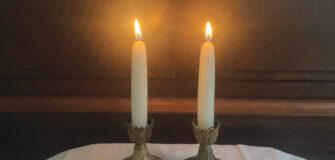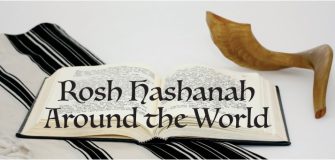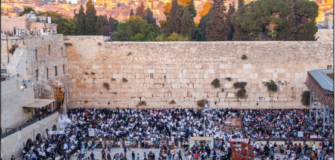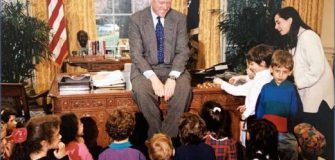The Red Sox struck first going up 1-0 in their first at bat. The game was a pitcher’s duel and stayed tied until the 7th inning with one out and a 2-2 count, Hank crushed a breaking ball into the left field stands. The score remained deadlocked 1-1 going into the bottom of the 9th with Greenberg leading off. On the second pitch he launched a home run toward left center and out of the stadium. Tigers win 2-1! The next day the Detroit Free Press headline stated, “A Happy New Year for Everyone.”
After the game Greenberg was quoted “I did a lot of praying before the game and I am going to do a lot of it after, but certainly the Good Lord did not let me down today. I was afraid I would be knocked down a couple of times by pitched balls, but once I was in there, I had only one thing to do—keep swinging.”
Detroit Free Press writer Iffty the Dopester penned,” I do not know anything about the law of the most ancient Church in the world. That’s all for students of the Talmud, but I’m here to testify in the world as a baseball expert that the two hits he made in that ball game were strictly kosher.”
Ten days later, on Yom Kippur, Hank Greenberg went back to his synagogue and did not play and the Tigers lost. The following Edgar A. Guest poem that was published in the Detroit Free Press best describes how the city felt.
The Irish didn’t like it when they heard of Greenberg’s fame, for they thought a good first baseman should possess an Irish name; And the Murphys and Mulrooneys said they never dreamed they’d see a Jewish boy from Bronxville out where Casey used to be.
In the early days of April not a Dugan tipped his hat Or prayed to see a “double” when Hank Greenberg came to bat.
In July the Irish wondered where he’d ever learned to play. “He makes me think of Casey!” Old man Murphy dared to say; And with fifty-seven doubles and a score of homers made, the respect they had for Greenberg was being openly displayed.
But on the Jewish New Year, when Hank Greenberg came to bat and made two home runs off Pitcher Rhodes — they cheered like mad for that.
“Came Yom Kippur — holy fast day worldwide over to the Jew, And Hank Greenberg to his teaching and the old tradition true spent the day among his people and he didn’t come to play.
Said Murphy to Mulrooney, ‘We shall lose the game today! We shall miss him on the infield and shall miss him at the bat but he’s true to his religion — and I honor him for that!’”
That year the Tigers made it to the World Series losing to the St. Louis Cardinals in 7 games. The following year the Tigers won the World Series and Hank Greenberg was the American league’s MVP.





































